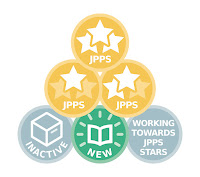Earlier this year I was contacted by Learned Publishing about reviewing a paper. This was an interesting experience for me because although I had been a researcher and then a commentator on scholarly publishing, including peer review, for many years, this was the first time I had done a review myself.
The paper I was invited to review was about publishing from a region outside the dominant geographies of North America and western Europe. Ensuring that scholarly publishing – and, in particular, the research that it disseminates – is genuinely global is something that I am passionate about (in my day job I work for INASP) so I was very happy to take on this review.
There have been plenty of complaints about peer review being provided freely to publishers and rarely recognized as part of an academic’s job description (it’s also not part of my non-academic job). And some researchers can feel bruised when their papers have been handled insensitively by peer reviewers.
On the other hand, there are powerful arguments for doing peer review in the interests of scholarship. What I’d not heard or realised until I did a review myself was how doing peer review is – or should be - a lot like mentoring. Since my time as a (chemistry) researcher I have regularly given others feedback about their papers, books and other written work, most recently as an AuthorAID mentor supporting early-career chemistry researchers in Africa and Asia. I also found, as I did the review, that I was very happy to put my name on it, even after recommending major revisions.
As I read the Learned Publishing paper I found I was reading it with that same mentoring lens and I realised there was an opportunity to help the authors not only to get their paper published but also to explain their research more clearly so that it has greater potential to make a difference. I wanted to encourage them to make their paper better — and to suggest what improvements they could make. Crucially, I didn’t feel like I was doing a review for the publisher; I felt I was doing the review for the authors and for the readers.
As I’ve seen with so many papers before, the paper had some really interesting data but the discussion was incomplete and a bit confusing in places; it felt to me a bit like an ill-fitting jacket for the research results. I made positive comments about the data and I made suggestions of things to improve. I hoped at the time that the authors found my feedback useful and constructive and so I was pleased that they responded quickly and positively.
The second version was much better than the first; a much clearer link was made between the data and the discussion and some answers had been given to many of those intriguing questions that had occurred to me in reading the first draft.We could have left it there but there were still some residual questions that the paper didn’t address, so in the second round I recommended further (minor) revisions.
Quickly, the third version of the paper came back to me. I know it can be frustrating for authors to keep revising manuscripts but the journey of this paper convinced me that it is worth it. The first version had great data that intrigued me and was very relevant to wider publishing conversations, but the discussion lacked both the connection and context to do the data justice. The second version was a reasonable paper but still had gaps between the data and the discussion that undermined the research. But the third version thrilled me because I realised I was reading something that other researchers would be interested in citing, and that could even be included in policy recommendations made in the authors’ country.
Having reflected on this process during this year's Peer Review Week with its theme of diversity, I am pleased that I read this paper and was able to provide feedback in a way that helped the authors to turn good data into an excellent article. First drafts of papers aren’t always easy to read, especially if the authors are not writing in their native language. Authors can assume that readers will make connections between the results and the conclusions themselves, resulting in some things being inadequately explained. But peer review – and mentoring -– can help good research, from anywhere in the world, be communicated more clearly so that it is read, used and can make a difference.
Dr Siân Harris is a Communications Specialist at INASP.








